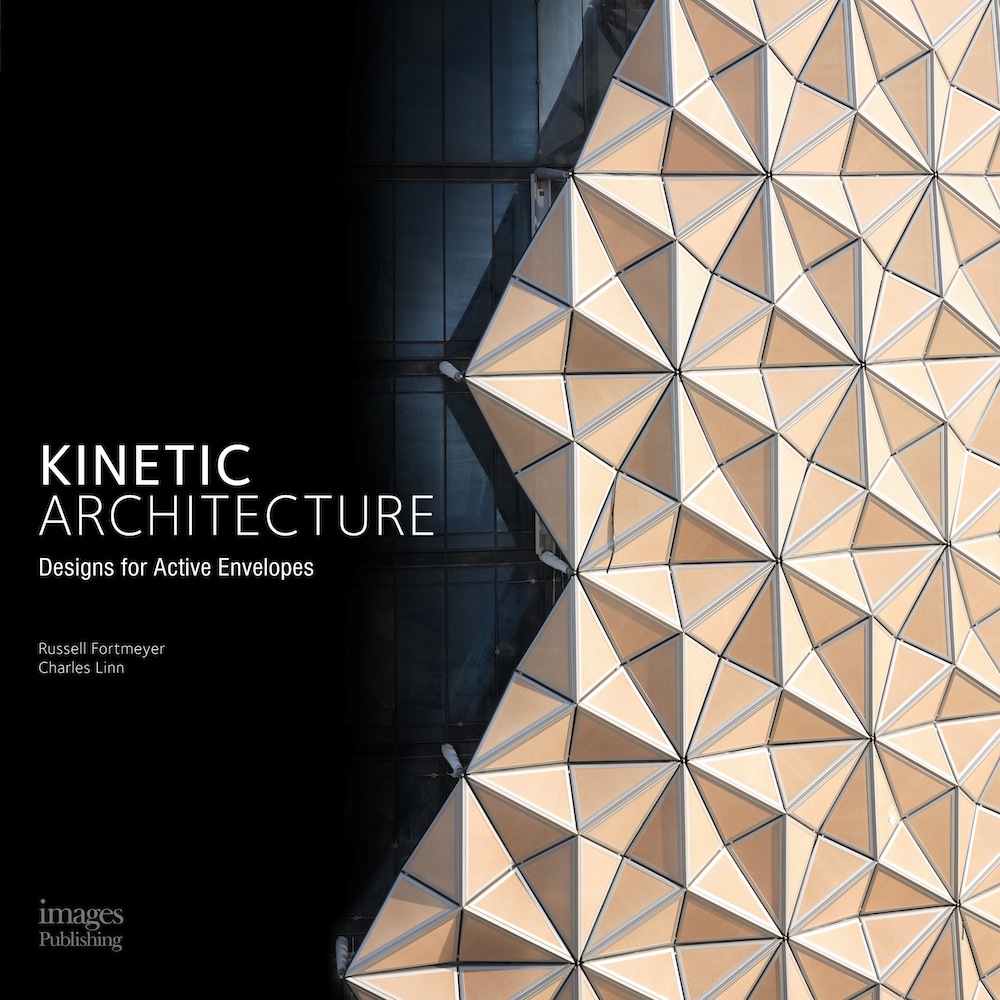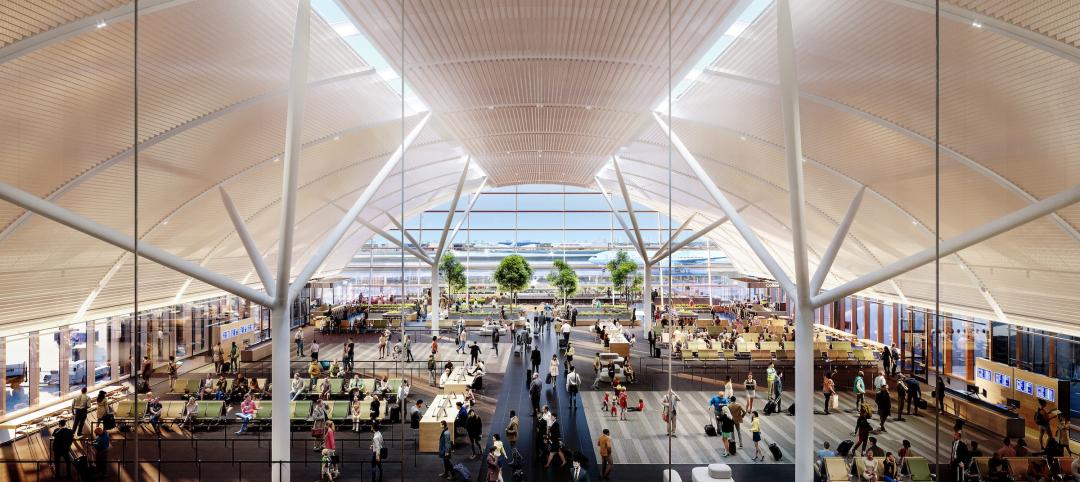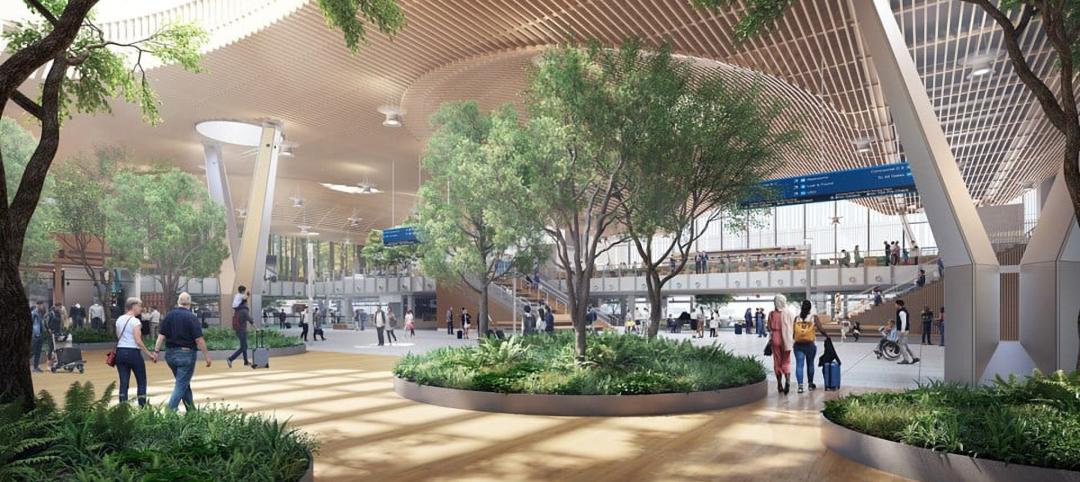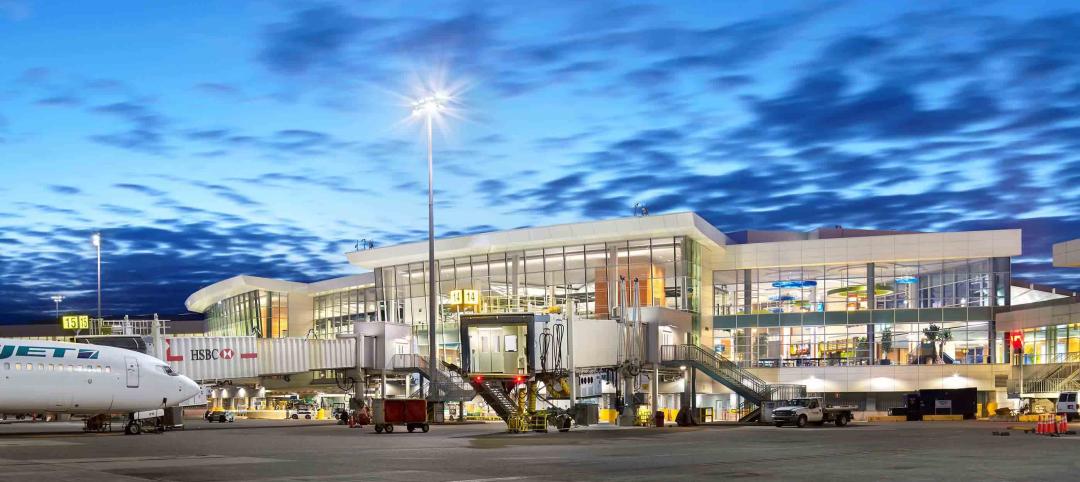Arup has announced that Russell Fortmeyer, LEED AP, BD+C, an associate in Arup's Los Angeles office, has co-authored a book on kinetic architecture with industry expert Charles Linn, FAIA, an architect who has specialized in architectural journalism for more than 25 years. Kinetic Architecture: Designs for Active Envelopes was published in April by Images Publishing Dist Ac. The foreword is written by well-known German architect Christoph Ingenhoven.
The Scottish architect and professor Alan Dunlop, in his review in the April issue of 'The Architects Journal,' wrote that the book succeeds as it "explores in a comprehensive and rigorous manner how contemporary architects have reacted to escalating international concern over the use of natural resources and climate change by modulating their designs to consume less energy, perform better and respond to site context."
The book is focused on facades as the intersection of energy and human comfort, as well as aesthetics, with a detailed exploration of the historical use of facades as dynamic building elements. The book illustrates the various ways architects, facade consultants, and engineers approach energy and comfort by manipulating air, water, and light through the layers of passive and active building envelope systems.
Common techniques include shading strategies, such as high-performance operable blinds, double-skinned facade systems that create an active thermal barrier with accommodations for seasonal adjustments, and the simple practice of installing lift-and-pivot replacement windows. It also explores radically new ideas in facade technology, such as hydronic shroud systems that run water through porous ceramic pipes to create an evaporative cooling effect blanketing a building's exterior. Most examples are geared at reducing solar heat gain in buildings in warm climates, or reducing heat loss in colder climates.
"This book is meant to illustrate that dynamic approaches to high-performance design are more common than one might think, and that it's not out of the question for designers of projects large and small to consider these systems," said Fortmeyer. "The applications discussed within the book apply to a range of building projects, from highly sophisticated technically advanced buildings to those with an almost do-it-yourself aesthetic."
The main objective of Kinetic Architecture is to explore innovative design and construction practices that promote energy efficiency, cost effectiveness, and comfort. It discusses the trend towards energy and facade consultants becoming a single role, embracing a belief that the building envelope is increasingly the key component for delivering energy efficiency for buildings.
It also identifies the emerging market for controls, sensors, and dynamic building systems that place kinetic facades within reach of a variety of architectural projects, with a conclusion that considers future developments in facade technology that consider energy generation, water purification, and other responses to pressing need for environmental sustainability.
Related Stories
AEC Tech | Oct 16, 2024
How AI can augment the design visualization process
Blog author Tim Beecken, AIA, uses the design of an airport as a case-study for AI’s potential in design visualizations.
Airports | Aug 22, 2024
Portland opens $2 billion mass timber expansion and renovation to its international airport
This month, the Portland International Airport (PDX) main terminal expansion opened to passengers. Designed by ZGF for the Port of Portland, the 1 million-sf project doubles the capacity of PDX and enables the airport to welcome 35 million passengers per year by 2045.
Smart Buildings | Jul 25, 2024
A Swiss startup devises an intelligent photovoltaic façade that tracks and moves with the sun
Zurich Soft Robotics says Solskin can reduce building energy consumption by up to 80% while producing up to 40% more electricity than comparable façade systems.
Great Solutions | Jul 23, 2024
41 Great Solutions for architects, engineers, and contractors
AI ChatBots, ambient computing, floating MRIs, low-carbon cement, sunshine on demand, next-generation top-down construction. These and 35 other innovations make up our 2024 Great Solutions Report, which highlights fresh ideas and innovations from leading architecture, engineering, and construction firms.
Airports | Jun 3, 2024
SOM unveils ‘branching’ structural design for new Satellite Concourse 1 at O’Hare Airport
The Chicago Department of Aviation has revealed the design for Satellite Concourse 1 at O’Hare International Airport, one of the nation’s business airports. Designed by Skidmore, Owings & Merrill (SOM), with Ross Barney Architects, Juan Gabriel Moreno Architects (JGMA), and Arup, the concourse will be the first new building in the Terminal Area Program, the largest concourse area expansion and revitalization in the airport’s almost seven-decade history.
Products and Materials | May 31, 2024
Top building products for May 2024
BD+C Editors break down May's top 15 building products, from Durat and CaraGreen's Durat Plus to Zurn Siphonic Roof Drains.
Biophilic Design | May 6, 2024
The benefits of biophilic design in the built environment
Biophilic design in the built environment supports the health and wellbeing of individuals, as they spend most of their time indoors.
Architects | May 2, 2024
Emerging considerations in inclusive design
Design elements that consider a diverse population of users make lives better. When it comes to wayfinding, some factors will remain consistent—including accessibility and legibility.
Airports | Apr 18, 2024
The next destination: Passive design airports
Today, we can design airports that are climate resilient, durable, long-lasting, and healthy for occupants—we can design airports using Passive House standards.
Airports | Feb 13, 2024
New airport terminal by KPF aims to slash curb-to-gate walking time for passengers
The new Terminal A at Zayed International Airport in the United Arab Emirates features an efficient X-shape design with an average curb-to-gate walking time of just 12 minutes. The airport terminal was designed by Kohn Pedersen Fox (KPF), with Arup and Naco as engineering leads.

















